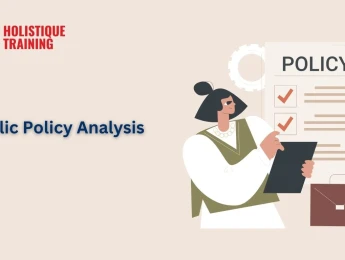Within the engineering industry, many factors can influence tasks and projects. To ensure productivity is not impacted or is minimally impacted, it is crucial for management and employees to have a strong understanding of decision-making.
When it comes to project management, there is a heavy focus on planning, risk management, and monitoring results. Risk management allows those in charge to predict and prepare for potential mistakes or influential factors that could affect productivity. Decisions need to be rational, and hence, the vitality of developing the skills for effective decision-making.
Decision-making may seem easy, but it’s not always the case. Making careful and promising decisions in situations of immense pressure is a skill that must be nurtured and improved. Someone must also be willing to take criticism and advice from others, reflect on previous decisions, and use that knowledge to improve further.
Effective monitoring and measuring of performance throughout projects are important factors in decision-making. They allow those involved to analyse the influences of decisions as they happen and provide great material to evaluate once the project is complete.
Upon completion of this course, participants will be able to:
- Understand the importance of decision-making in engineering projects.
- Assess key strategic techniques for quick decision-making.
- Effectively explain and justify decisions to employees and superiors.
- Identify how decision-making and project management are intertwined.
- Develop viable project management solutions based on rational analysis and decision-making methods.
- Improve the quality of business functions through innovation, analysis, critical thinking, and risk assessment.
- Advance the skills relating to project initiation, planning, and control.
- Apply important qualitative and quantitative analysis techniques to typical project situations.
This course is designed for anyone within the engineering industry who wishes to develop their competency in decision-making. It would be most beneficial for:
- Finance Managers
- Internal Auditors
- Engineering Project Managers
- Chief Engineering Officers (CEOs)
- Engineering Managers
- Project Engineers
- Engineering Directors
This course uses a variety of adult learning styles to aid full understanding and comprehension. Participants will review case studies of completed projects to highlight areas of importance and where smart decision-making has influenced the result.
They will be provided with all the necessary tools to carry out the learning exercises. In addition, participants will participate in group discussions, group activities, and presentations to further develop their knowledge of the topics. They will have the opportunity to establish their own project plans in relation to their respective roles, identify associated risks, and use decision-making skills to create solutions for these.
Day 5 of each course is reserved for a Q&A session, which may occur off-site. For 10-day courses, this also applies to day 10
Section 1: Fundamentals of Decision Analysis
- Defining what decision analysis is.
- The internal and external factors that influence the decision-making process.
- Strategic, corporate, operational, and personal decisions.
- Understanding why project management is important.
- Common problems faced within the engineering industry, particularly with engineering projects.
- How effective decision-making resolves these problems.
- The project lifestyle and project management processes.
- Project selection, classification, and option analysis.
Section 2: Project Initiation and Risk Management
- Identifying business needs and industry standards.
- Reviewing project requirements.
- Determining goals, objectives, priorities, and restrictions.
- Utilising risk assessment methods to analyse the associated risks.
- Establishing risk management.
- Using analytical tools to balance certainty and risks – payoff tables and decision trees.
Section 3: Decision-Making During Planning
- Developing a project work breakdown structure.
- Establishing a logical progression of work.
- Estimating task durations and budgeting.
- Delegating tasks accordingly.
- Quantitative analysis techniques.
Section 4: Resourcing, Monitoring & Control
- Resource scheduling and budgeting.
- Preparing for project execution and communicating plans effectively.
- Utilising decision-making techniques to address problems as they arise.
- Negating problems and issues before productivity is heavily impacted.
- Earned Value Analysis.
Section 5: Project Evaluation
- Successful project completion and hand-over
- Assessing benefit realisation.
- Reflecting on issues and the steps taken to resolve them.
- Analysing decisions made and how they influenced productivity.
- Creating personal and team improvement plans for future projects.
Upon successful completion of this training course, delegates will be awarded a Holistique Training Certificate of Completion. For those who attend and complete the online training course, a Holistique Training e-Certificate will be provided.
Holistique Training Certificates are accredited by the British Assessment Council (BAC) and The CPD Certification Service (CPD), and are certified under ISO 9001, ISO 21001, and ISO 29993 standards.
CPD credits for this course are granted by our Certificates and will be reflected on the Holistique Training Certificate of Completion. In accordance with the standards of The CPD Certification Service, one CPD credit is awarded per hour of course attendance. A maximum of 50 CPD credits can be claimed for any single course we currently offer.
- Course Code IND04-116
- Course Format Classroom, Online,
- Duration 5 days













